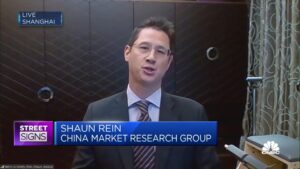 Fast food giant McDonald’s is expanding its footprint in China with one-third of its planned 9,000 new restaurants. China is key for McDonald’s expansion, says Shanghai-based business analyst Shaun Rein in FDIntelligence. “McDonald’s actually has a lot of potential because it’s considered cheap, quick [and] convenient,” says Shaun Rein.
Fast food giant McDonald’s is expanding its footprint in China with one-third of its planned 9,000 new restaurants. China is key for McDonald’s expansion, says Shanghai-based business analyst Shaun Rein in FDIntelligence. “McDonald’s actually has a lot of potential because it’s considered cheap, quick [and] convenient,” says Shaun Rein.
FDIntelligence:
McDonald’s expansion in China comes against a backdrop of a slowing domestic economy and rising geopolitical tensions.
“McDonald’s actually has a lot of potential because it’s considered cheap, quick [and] convenient,” says Shaun Rein, the managing director of China Market Research Group.
While foreign companies must be “cautious about entering China and getting caught up in the geopolitical fight”, Mr Rein adds this does not apply to brands like McDonald’s in “innocuous” sectors.
And yet, McDonald’s was a major symbol of the Western exodus from Russia after its invasion of Ukraine. This begs the question: does the fast food giant worry about the risk of China invading Taiwan?
Mr Rein says that many multinational corporations are reducing their investment into China out of fears over a war over Taiwan. “There would be political pressure to divest Chinese operations in the event of war, but my guess is there would be greater pushback from the business community than there was over Russia.”
Shaun Rein is a speaker at the China Speakers Bureau. Do you need him at your meeting or conference? Do get in touch or fill in our speakers’ request form.
Are you looking for more strategic experts at the China Speakers Bureau? Do check out this list.
















